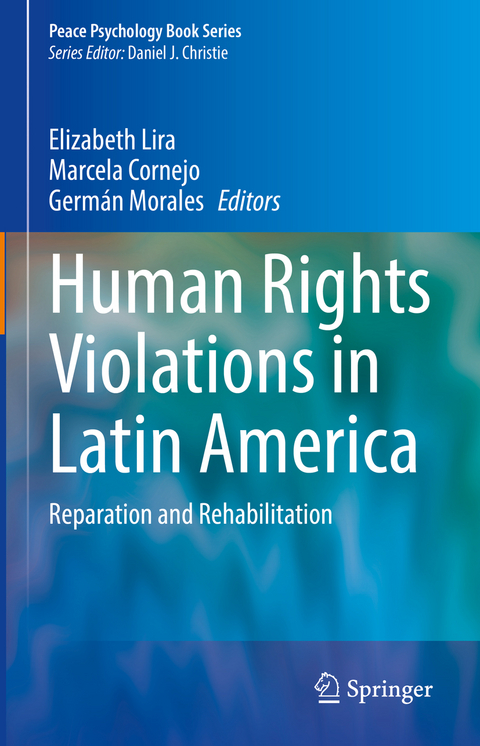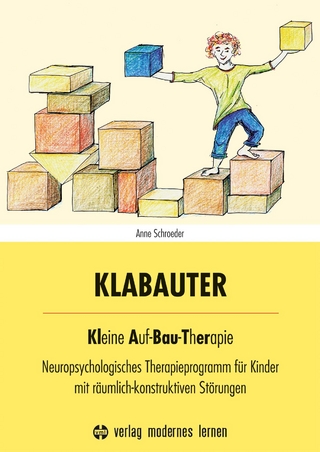
Human Rights Violations in Latin America
Springer International Publishing (Verlag)
978-3-030-97541-8 (ISBN)
A timely contribution to the study of peace psychology in Latin America, this volume describes clinical, psychosocial, and community interventions with victims from Mexico to Chile from the 1970s onward. Chapters analyze how to conceptualize complex processes such as the appropriation of children and political repression, raising psychological, juridical, and political implications for the victims, their families, human rights organizations, and society. Also included are studies and analyses of political processes in countries currently undergoing crises such as Venezuela and Colombia and the challenges posed by the peace process from a political psychology perspective. All authors present the results of studies or clinical cases illustrating creative methodologies and practices in different contexts.
This book provides the context for differences in the victims' damages and the treatment approaches and methodologies adopted in each case. The authors outline psychological perspectives grounded in ethical and professional choices based on recognizing people's dignity while seeking rehabilitation and reparations for victims, families, and communities. It paves the way for reparations and rehabilitation, and ultimately to the establishment of democracy and peace in this part of the world.
Readers will benefit from
- understanding the relationship between mental health and human rights
- understanding ethical and professional dimensions
- a broadened knowledge of working with victims
Elizabeth Lira: Psychologist (Universidad Catolica de Chile, 1971), MSc. in Development Sciences (1977); Post graduate degree in Family Therapy (1989). She worked as clinical psychologist with victims of human rights violations after 1978 in Chile. She received the National Psychology Award "Colegio de Psicologos", Chile, 1983; she was awarded in 1991 with the "Sergio Yulis" prize of the Chilean Society of Clinical Psychology;the International Humanitarian Award American Psychological Association in 2002 and the National Prize of Humanities and Social Sciences 2017 in Chile. She was member of the Political Prison and Torture Commission of the Government of Chile: 2003-2005 and 2010-2011. She has published several books and articles on human rights, reparation policies, reconciliation, and memory. Her last book published in 2020 with Brian Loveman (SDSU) is Poder Judicial y Conflictos Politicos. Chile 1973-1990. [Judicial Power and Political Conflicts. Chile 1973-1990]. She has been Dean of the Faculty of Psychology (2014-2022) at the Alberto Hurtado University in Santiago and currently co-researcher in the project "Beyond the victim paradigm: Genealogies of subject performance devices of political violence. Chile, 1973-2018" (Fondecyt N Degrees1190834) in the Interdisciplinary Program in Memory and Human Rights at the same university. Marcela Cornejo: Psychologist (Universidad Catolica de Chile, 1995) and PhD in Psychological Sciences (Universite de Louvain, Belgium, 2004). She is the current Chair of the Department of Psychology at the Pontificia Universidad Catolica de Chile. She is an associate researcher at the Millennium Institute for Research on Violence and Democracy, VIODEMOS [ANID - Millennium Science Initiative Program - ICS2019_025], and an adjunct researcher at the Center for the Study of Conflict and Social Cohesion, COES [CONICYT/FONDAP/15130009]. She has devoted over 20 years to the study of topics associated with psychosocial traumas due to political violence; individual and collective working-through processes produced by political violence; processes of biographical construction and collective memory; generational aspects in the comprehension of psychosocial phenomena; and the rationales and practices of qualitative social research. In these topics, she has conducted research projects in collaboration with Chilean and foreign researchers, participating in and organizing conferences and symposiums, publishing papers in several journals, chapters in books, and supervising doctoral theses in Chilean and foreign universities. German MORALES: Clinical Psychologist and MSc in Clinical Psychology, Universidad Catolica de Chile. Postgraduate degree in Family Therapy, Instituto Chileno de Terapia Familiar. He has worked as a psychotherapist in several institutions that serve low-income areas and victims of human rights violations such as the clinical team of the Latin American Institute of Mental Health and Human Rights (ILAS), which received the Chilean National Psychology award (2003). He has taught at several universities and, since 2001, he has been a Professor of the Department of Psychology at the Universidad Catolica de Chile. In addition, he belongs to several organizations, including the Chilean Association of Group Psychoanalytic Psychotherapy, the Child Systemic Relational Network, and the Chilean Chapter of the International Association of Psychotherapy and Relational Psychoanalysis (IARPP-Chile). He has authored several publications on trauma, adolescence, self-care, and professional burnout.
Chapter 1. Psychology and Human Rights. An introduction.- Section I .- Chapter 2. Psychology and Human Rights in Chile. Assistance, Registration, Denunciation, Rehabilitation, and Reparation.- Chapter 3. Method of Forced Disappearance and Trials for Crimes Against Humanity: A Dialogue between the Legal and Subjective Dimensions. Specifics of the Argentine Case.- Chapter 4. Locating Children Appropriated by Dictatorships of the Southern Cone: Questioning Identities.- Chapter 5. Photography and Film in the Experience of Identity Restitution: Writing with Light.- Section II.- Chapter 6. The Method and Methodology of Psychosocial Accompaniment Work: A Contribution for At-Risk Defenders in Mexico.- Chapter 7. Construction of a Model of Psychosocial Care and Support. Training of Peer Psychosocial Companions: An Experience from Mexico.- Section III.- Chapter 8. Psychotherapy with Former Political Prisoners in Uruguay: The Vision of the therapists.- Chapter 9. Arpilleras of Sexual and Domestic Violence in Post-War Guatemala: Accompaniment in Processes of Psychosocial Reparation.- Chapter 10. Group Therapeutic Strategies and Human Rights. Human Rights Violations in Chile.- Section IV.- Chapter 11. El Mozote Massacre: Expert Research and Challenges of Psychosocial Reparation.- Chapter 12. Psychosocial Work in the Transitional Justice Framework: The Women of Sepur Zarco.- Chapter 13. Contribution of the Psycho-forensic Evidence in the Inter-American Court in the Case of Lonkos and Mapuche Indigenous Leaders versus Chile. Section V.- Chapter 14. Testimony and Symbolic Reparation: The Clinica do Testemunho Project in Rio de Janeiro.- Chapter 15. The Clinics of Testimony: New Ways of Recognition through Group Listening to Military Personnel.- Chapter 16. Colonia Dignidad: Lights and Shadows in the Recognition of the Victims.- Section VI.- Chapter 17. Political Transition and Social Reparation in Venezuela: Challenges of Democratic Reconstruction.- Chapter 18. Psychology and Human Rights in Colombia: Contributions to Peacebuilding.- Chapter 19. Working Mental Health in Peru.
| Erscheinungsdatum | 10.05.2022 |
|---|---|
| Reihe/Serie | Peace Psychology Book Series |
| Zusatzinfo | XXI, 286 p. 12 illus., 11 illus. in color. |
| Verlagsort | Cham |
| Sprache | englisch |
| Maße | 155 x 235 mm |
| Gewicht | 619 g |
| Themenwelt | Geisteswissenschaften ► Psychologie |
| Sozialwissenschaften ► Politik / Verwaltung | |
| Schlagworte | Arpilleras • Enforced Disappearance • Ethics and psychological practice • Extreme Traumatization • Human Rights Reparations • Mental Health and Human Rights • Political Repression of Latin American Dictatorships • Psychosocial intervention and human rights • Psychosocial Trauma • Recovery of appropriated children • Violence in Latin America |
| ISBN-10 | 3-030-97541-X / 303097541X |
| ISBN-13 | 978-3-030-97541-8 / 9783030975418 |
| Zustand | Neuware |
| Haben Sie eine Frage zum Produkt? |
aus dem Bereich


